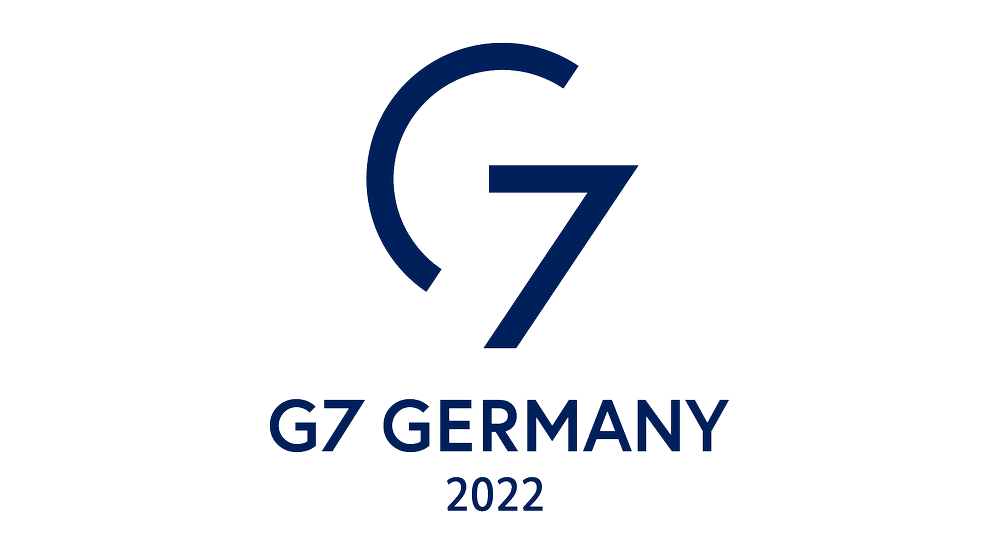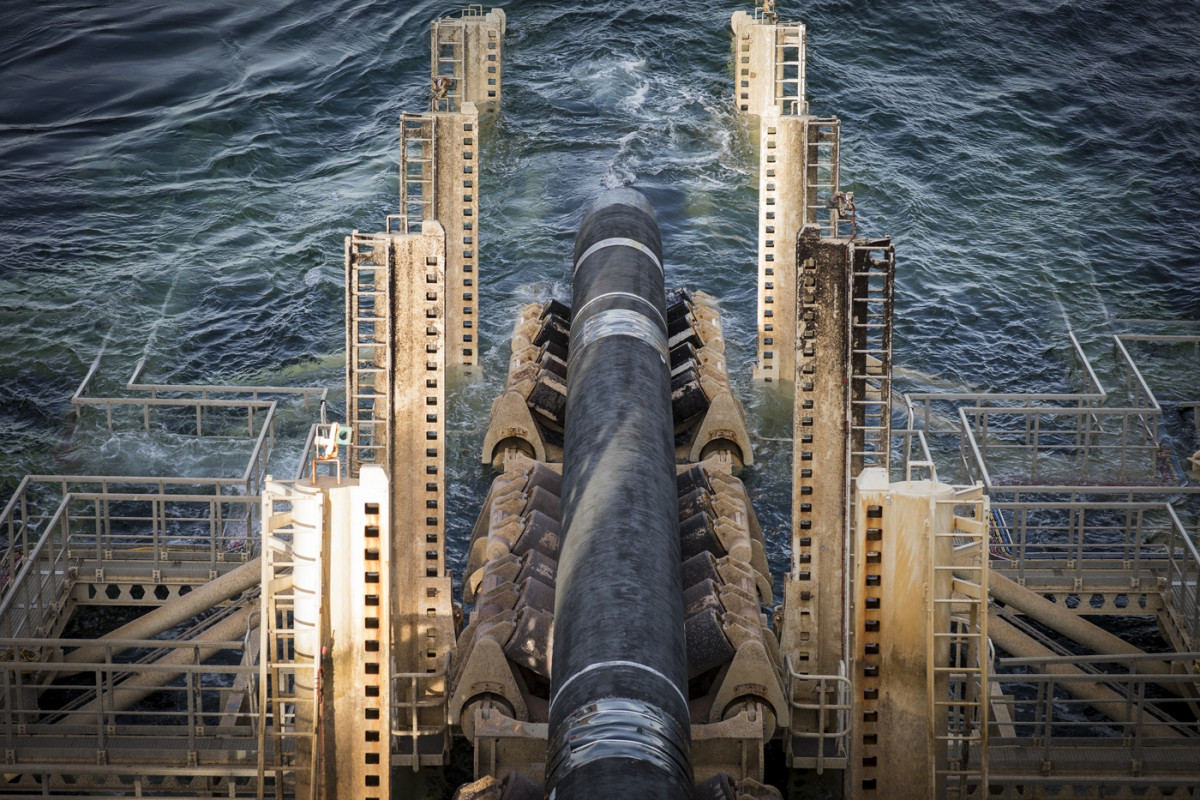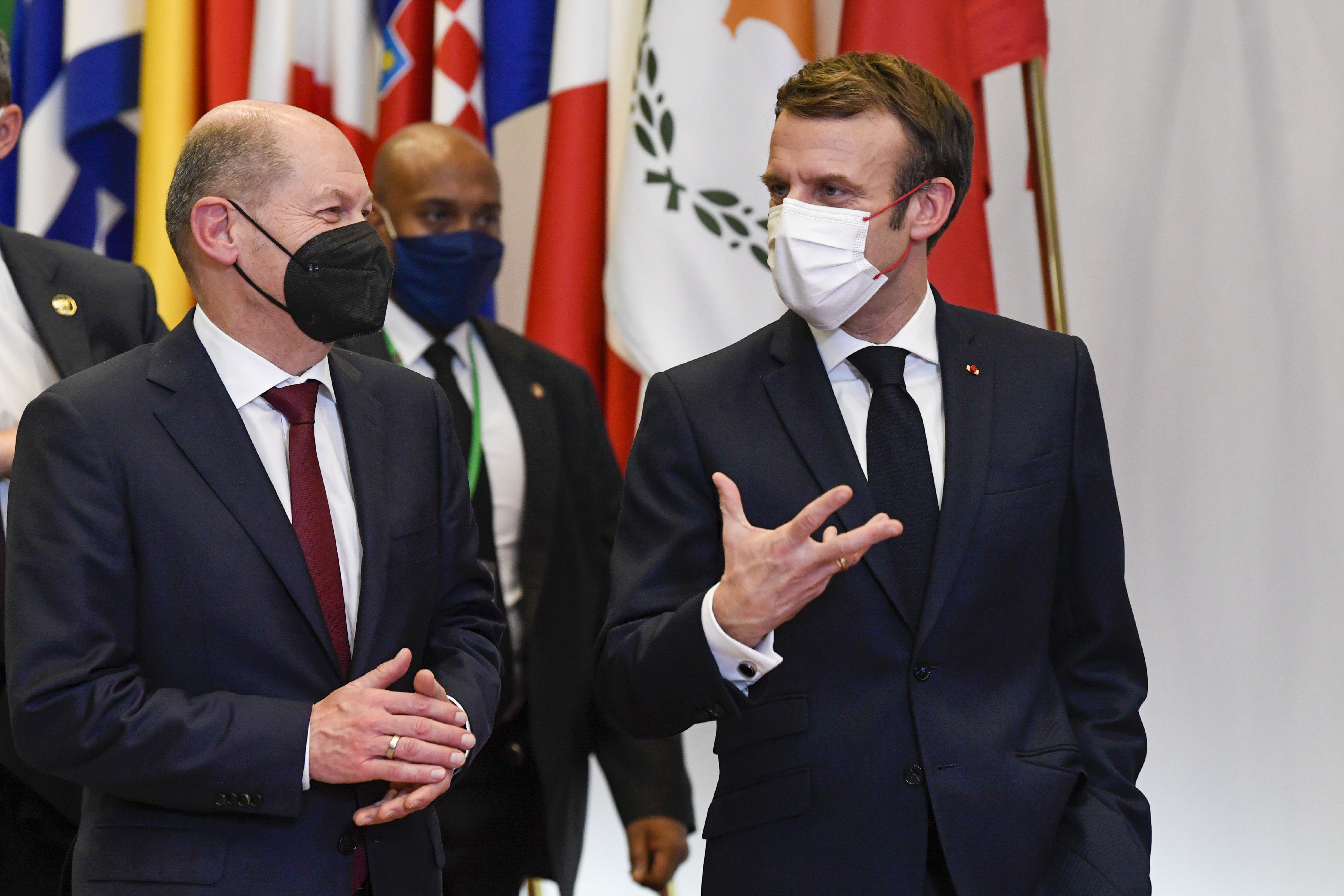Germany to push for international climate club during G7 presidency
The new government in Germany will have to hit the ground running on the international stage as the Group of Seven (G7) presidency in 2022, crucial decisions at the European level and the challenges of climate diplomacy will require immediate attention as well as resolve from the team of newcomers surrounding newly elected chancellor Olaf Scholz to drive the global energy transition and climate agenda.
When it comes to the new new government’s energy and climate policy, all eyes have been on the massive domestic tasks for the coming years, such as the rapid rollout of renewable energy sources or the long-overdue transformation of the country’s transport sector. However, chancellor Scholz’s coalition has made it clear that it sees the transition to climate neutrality as a global necessity and a challenge which needs to be tackled together with European and international partners – and in solidarity with poorer nations.
“We want to use our combined efforts to support developing and emerging countries in the transition away from coal, oil and gas and towards renewable energy sources,” said development minister Svenja Schulze only days after she took office. A “just transition” would be her guiding principle when transforming economies in a climate-friendly way.
Social Democrats, Greens and the pro-business FDP agreed in their coalition treaty to make climate action a central task that cuts across the new government’s policy departments – including the European perspective within the economy and energy ministry and international aspects in the development ministry and the foreign office.
You never walk alone, strong cooperation – this will be the guiding principle of Germany's G7 presidency for sustainability, human rights and future viability.
“I would like to work with you to bolster the influence of the Federal Foreign Office […] especially when it comes to international climate policy,” foreign minister Annalena Baerbock told her new team during her inauguration. To this end, the ministry would take over the responsibility on international climate change conferences from the environment ministry and lead future COP negotiations.
Even before the next UN Climate Change Conference (COP27) in Egypt, 2022 offers plenty of opportunity for the new government to show that it is serious about the emphasis on joint international action.
G7 presidency chance to strengthen international climate cooperation
Germany’s new government cabinet has little time to learn the ropes. The country’s foreign policy year kicks off with a bang as Germany takes over the G7 presidency on 1 January. Analysts have called it a “sink-or-swim challenge” for the new government and for Chancellor Scholz, who does not yet have the same level of clout among leaders as his predecessor Angela Merkel had.
Neither does his foreign minister Annalena Baerbock. “You never walk alone, strong cooperation – this will be the guiding principle of Germany's G7 presidency for sustainability, human rights and future viability,” she said ahead of a G7 foreign minister meeting in December.
Strengthening international climate cooperation ahead of COP27 in November will to a large degree depend on Germany’s G7 presidency, write Susanne Dröge and Oliver Geden, researchers from the German Institute for International and Security Affairs (SWP). Among other things, the G7 countries should “exert even more influence than before on the climate-policy-hesitant G20”, which will be led by Indonesia in 2022, they write. “Jakarta will need support in its efforts to include the important G20 members China and India.”
The summit of G7 heads of state and government on 26-28 June in Schloss Elmau in the Bavarian Alps could thus turn out to be an important stepping stone in the 2022 global climate agenda – similar to the 2015 G7 summit, also under a German presidency and also in Elmau.
Under the lead of former chancellor Merkel, the G7 heads of state and government agreed to the phase out of fossil fuel use by the end of the century and thus did their part to pave the way for a successful COP in Paris several months later, where countries decided the Paris Agreement.
Global climate protection efforts indeed require special attention by the new government, German Council of Economic Experts member Veronika Grimm told Clean Energy Wire. She says the government should strive for a so-called “climate club” with its important trading partners. “In other words, better coordinate and harmonise climate protection ambitions.”
The idea of a climate club – a partnership of the countries with the highest ambitions for climate policy worldwide – is nothing new, but has quickly gained ground in international policy circles. Chancellor Scholz is a staunch supporter of using this vehicle to give additional impetus to the implementation of the Paris Climate Agreement – and at the same time protect German industry from competitive disadvantages. As finance minister, he presented a first key-issues paper on an “ambitious, bold and cooperative” climate club this summer.
The government is set to present official G7 priorities in January, but the foreign office has said that the climate crisis and its consequences will be at the centre of the presidency. The coalition treaty already mentions the G7 presidency as the starting point for an international climate club with a uniform CO2 floor price and a joint carbon border adjustment.
This is in line with demands by German industry, which is ever concerned about possible disadvantages that more stringent climate provisions could bring vis-à-vis international competition. “National and European solo efforts do not help,” said the BDI industry association, stressing that the future German government has to use the German G7 presidency as an opportunity to achieve international cooperation on CO2 pricing. “To this end, the establishment of climate clubs of ambitious states can help, provided that the major emitters China and the USA are included.”

Closer to home – in the European Union – Germany will be asked to step up to the plate long before the June G7 summit. Energy policy has long ceased to be based purely on national decisions and this is even more the case on a densely populated continent like Europe. The EU has embarked on the journey towards climate neutrality by 2050 with its sustainable growth strategy, the Green Deal. It is currently negotiating the crucial legislative reform package to get on the right path – the “Fit for 55” package -- to ensure the EU reaches its 2030 target of reducing greenhouse gas emissions by 55 percent. The European Commission this year published its proposals as the starting point for member state governments and the European Parliament to debate and decide a complete overhaul of EU energy and climate legislation over the coming months and years.
France will play a key part in advancing the different pieces of legislation in the first half of 2022 as it takes over the EU Council presidency. However, the country will head to the polls to elect a president in April. That means incumbent President Emmanuel Macron will fight for re-election even as his government aims to push key Fit for 55 proposals such as the carbon border adjustment mechanism (CBAM). Thus, efforts by Germany – seen as the “engine of Europe” – could prove crucial.
Germany’s new coalition has said it supports the European Commission proposals. The German government will have to invest considerable time and effort to push through contentious elements, such as the CBAM and a carbon price for transport and heating fuels, in the negotiations among member states and with the European Parliament.
The coalition treaty also stipulates the use of the presidency to establish climate partnerships with the goals of climate neutrality, the massive expansion of renewables and the necessary infrastructure, and the production of hydrogen. Germany could build on its years of experience with bilateral “energy partnerships”, or look to minilateral projects such as the South Africa coal deal announced at COP26 in Glasgow.
“The G7, as the richest countries on earth, have a special responsibility to address the coronavirus pandemic and climate change, and they must show global solidarity with the poorest,” said development minister Schulze.
The German government should also press ahead with the further development of emissions trading at the European level, says economist Grimm. “Without a decisive effort by the German government, this will not progress and without effective emissions trading at EU level, it is difficult to imagine that we can achieve climate neutrality by 2050 in the EU.”
Overall, Germany’s EU climate and energy policy could become more proactive and ambitious because key ministries are now in the hands of the Greens: economy and climate, the foreign office and environment and agriculture. The Green Party has also installed a state secretary in the economy and climate ministry to serve as the “interface” for Green government work vis-à-vis the Social Democratic chancellery – Anja Hajduk. The transport ministry, however, is led by the FDP’s Volker Wissing, and the finance ministry by his colleague Christian Lindner, so internal German government quarrels at EU level might not be a thing of the past.
Describing its role within the EU, the government states in the coalition treaty: “As the largest member state, we will assume our special responsibility in a spirit of service to the EU as a whole.”
There is at least one issue standing in the way of efforts to portray this “service to the EU as a whole”. The contentious Russian-German gas pipeline Nord Stream 2 has split Europe with Germany on one side and a large group of neighbouring EU member states on the other.
The new government coalition has so far shown little interest in deviating from Germany’s established position to support Nord Stream 2 (despite the Green Party’s long-standing opposition) – or at least let it proceed as a "private sector project".
It remains to be seen whether the pipeline will eventually come into service in 2022, threatened by tensions between Ukraine and Russia and by U.S. sanctions. The certification procedure, which regulators have put on hold until Nord Stream 2 founds a subsidiary under German law, is expected to last several months still – with uncertain outcome, also because EU regulators will get a say as well.

The overall role of fossil gas in the transition to climate neutrality is set to grow more controversial in the European Union next year, writes Kira Taylor for EurActiv. While the fuel emits less CO2 than coal when burned, it is still a fossil fuel. Leaks of the potent greenhouse gas methane present another disadvantage in the fight against climate change.
Countries like Germany have emphasised for years that they see an important role for fossil gas in the transition towards climate neutrality – the new government is no exception. Gas industry experts and journalists were surprised at how “gas-friendly” the coalition treaty turned out to be.
The latest example of the EU debate on the role of gas is the long-postponed decision of whether to consider nuclear and fossil gas as sustainable investments under the taxonomy. As France and others push for nuclear energy to be included, parts of the German government have called for gas to be recognised as a transitional fuel. It is up to the Commission to present a so-called delegated act, but intensive discussions are ongoing with member states, including France and Germany, to ensure that the result would not be blocked by a large majority of countries. The Commission could present an act which includes both energy sources – with certain strings attached – by mid-January 2022.

